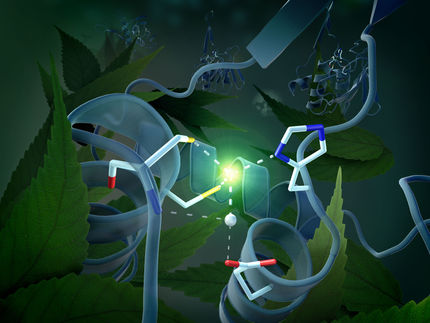Traffic jam in the cell
A German-Polish team with scientists from Freiburg revealed how cells survive mistargeting of mitochondrial proteins
A team of scientists led by Prof. Dr. Bettina Warscheid from the University of Freiburg and Prof. Dr. Agnieszka Chacinska from the International Institute of Molecular and Cell Biology in Warsaw/Poland discovered a mechanism called "Unfolded Protein Response activated by mistargeting of proteins", UPRam for short. This mechanism protects cells against the accumulation of mitochondrial precursor proteins that missed their target – the mitochondrion – due to a defect in the protein import system. The study shows how cells react to and survive stress that is triggered by the accumulation of mitochondrial precursor proteins. The data may help to better understand mechanisms of age-related and neurodegenerative diseases in the future. These are often accompanied by mitochondrial dysfunctions and impairment of the protein homeostasis, the maintenance of the steady state of a cell.
Mitochondria need more than a thousand proteins to fulfill their multitude of functions. The majority of mitochondrial proteins are synthesized in the cytosol, the intracellular fluid, and need to be transported into the mitochondria. Defects in the protein import machinery lead to mitochondrial dysfunctions and the accumulation of mitochondrial precursor proteins in the cytosol.
How the cell reacts to the resulting stress has been unknown so far. To address this question, Dr. Silke Oeljeklaus and Dr. Sebastian Wiese from the Warscheid group investigated, with the help of high resolution mass spectrometry, how the proteome of cells with a defect in the mitochondrial protein import is altered. The proteome of a cell comprises all proteins that are present in the cell at a given point of time. Based on these data, the research team discovered that UPRam consists of two main pathways that are used by the cell to protect itself against a defective mitochondrial protein import. First, the cell inhibits translation, to counteract further accumulation of mitochondrial precursor proteins. Second, the cell activates the proteasome, which removes the already existing traffic jam on the mitochondrial import pathway.
In order to provide proof for UPRam, the scientists decoupled the activation of the proteasome from translational inhibition by the use of artificially mistargeted mitochondrial proteins. They showed that the cell maintains its inner balance as it adjusts the mechanisms for the regulation of the cellular protein homeostasis to the state of its mitochondria. The cell activates the proteasome by a more efficient assembly and, thus, reacts directly to the amount of proteins that fail to be imported into the mitochondria
Original publication
Most read news
Original publication
Lidia Wrobel, Ulrike Topf, Piotr Bragoszewski, Sebastian Wiese, Malgorzata E. Sztolsztener, Silke Oeljeklaus, Aksana Varabyova, Maciej Lirski, Piotr Chroscicki, Seweryn Mroczek, Elzbieta Januszewicz, Andrzej Dziembowski, Marta Koblowska, Bettina Warscheid & Agnieszka Chacinska, Nature, 2015
Organizations
Other news from the department science

Get the life science industry in your inbox
By submitting this form you agree that LUMITOS AG will send you the newsletter(s) selected above by email. Your data will not be passed on to third parties. Your data will be stored and processed in accordance with our data protection regulations. LUMITOS may contact you by email for the purpose of advertising or market and opinion surveys. You can revoke your consent at any time without giving reasons to LUMITOS AG, Ernst-Augustin-Str. 2, 12489 Berlin, Germany or by e-mail at revoke@lumitos.com with effect for the future. In addition, each email contains a link to unsubscribe from the corresponding newsletter.


















































